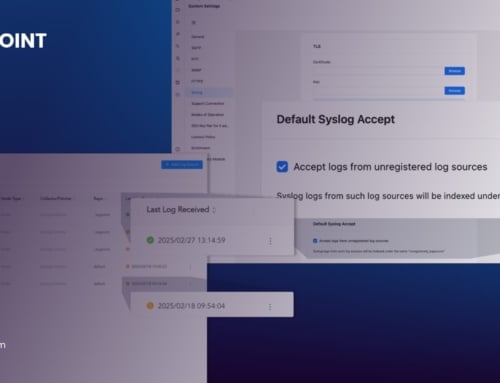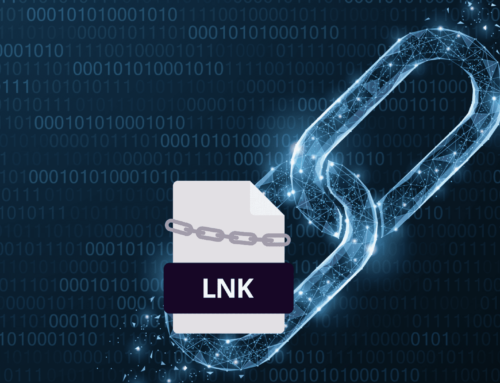Updated July 2023
Finding the right balance between digitalization and data accessibility is not an easy task. This becomes especially true when you deal with highly sensitive data for example in the healthcare sector. Hospitals have the legal obligation to protect their patient’s information and only healthcare personnel must have access to these records to prevent others from viewing or changing them.
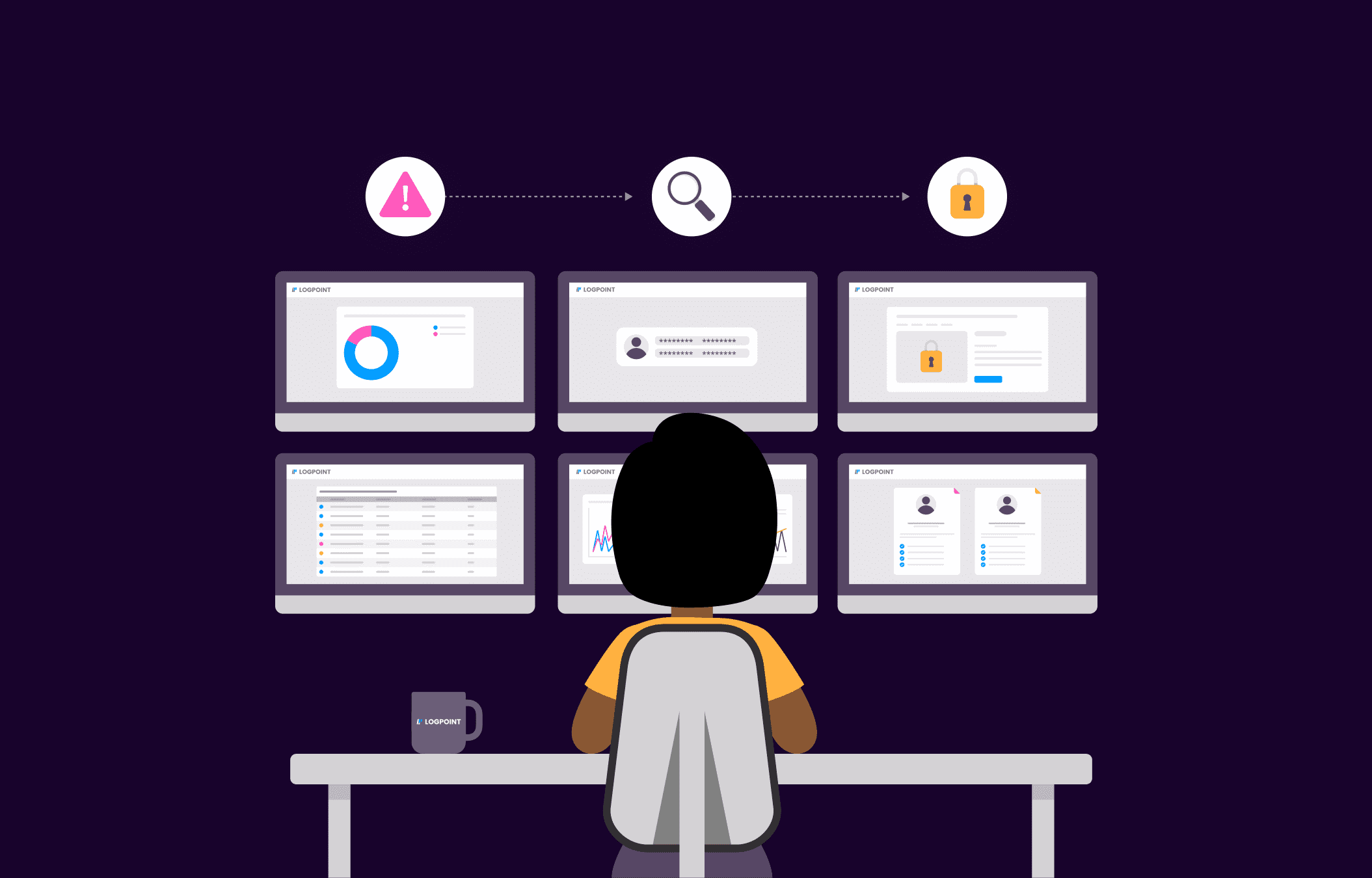
The immediate answer to this problem would be to increase security, especially by controlling who is authorized and limiting the way healthcare professionals access the patient’s information. So, what happens when doctors and nurses lack the technical know-how and risk making mistakes? What immediately springs to mind is that there should be a middle ground between security analysts and medical staff that doesn’t compromise the records of patients.
The challenge: Making SIEM data accessible to non-IT healthcare staff
The development of Applied Analytics came to life in collaboration with customer requests from the medical sector in Scandinavia. For their non-technical employees, it was difficult to search and run reports. The customers needed a simple way to search, schedule, and run reports based on application logs. Simultaneously, the customers required full permission control on information access and a report approval workflow that can scale to large, distributed organizations.
In the European Union Agency for Cybersecurity’s catalog of good practices for the security of healthcare services it’s plain to see that one of the most common threats are human errors. That’s why it was important for Logpoint to create a solution that would fuse the data security provided by SIEM and the ease of use of a record management system, and that was the birth of Applied Analytics.
What is Applied Analytics
The technical explanation is that Applied Analytics is an add-on web application that generates patient reports for health organizations by fetching information from medical journal systems, such as Cosmic, NCS Cross and Lifecare.
Applied Analytics provides a bridge between security and data auditing in the healthcare sector that reduces complexity while providing full visibility into patient record access.
With an easy-to-use and intuitive interface that runs in any web browser, Logpoint’s Applied Analytics gives non-technical staff access to an easy reporting tool that will generate patient reports using the information from their medical journal system.
How does Applied Analytics work?
Using logs as a foundation, Applied Analytics provides insight into applications, such as medical journals and social welfare systems. It uses Logpoint’s SIEM to fetch and integrate the data to create customized reports.
It ensures that unauthorized individuals are not accessing medical records, but also has an approval workflow for auditing, evaluating, and other organizational reporting purposes.
Meeting compliance requirements
Many organizations must meet legal and compliance requirements to keep information about patients, customers, and citizens private and secure. There are also requirements that only authorized personnel can access certain information. Logpoint Applied Analytics has a simple workflow with strict access management to enable the correct distribution of reports to specific organizational units.
Keeping information secure
At the same time, Applied Analytics goes beyond usability, it also offers more security for your patient’s medical records. The Logpoint server handles log collection and secure storage of logs and data from other applications. The server also stores all user audit logs from Applied Analytics. For increased security, Applied Analytics runs on a separate server, which connects to the central Logpoint server. Users authenticate using their regular credentials. The user permissions ensure that a user can only see relevant information, such as users and events related to their department.
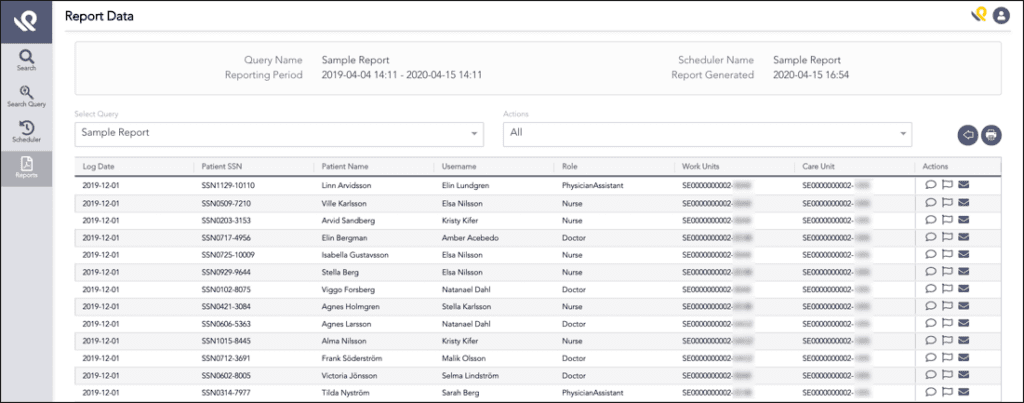
What will your organization gain with Applied Analytics?
Applied Analytics is an ideal solution for organizations dealing with healthcare and other patient data and while the goal is to facilitate the work of searching and reporting the information, the benefits are many. Not only will your organization grow in efficiency by reducing bottlenecks but most importantly comply with data protection laws, such as GDPR.
In addition, another main benefit of pairing with a SIEM solution is the guarantee that Applied Analytics stores the data securely and ensures the access is controlled, as it provides traceability. It’s fair to say that both malicious actions and human error decrease.
Ultimately, Applied Analytics can be customized to your preferences. You can predefine queries and schedule reports, to get them generated in a set time interval. You can also perform actions like downloading, flagging, commenting, and reviewing the generated reports that will come in handy.
What comes with Applied Analytics?
Working with patients' information and medical records requires both security and compliance, but it shouldn't become a bottleneck that hinders the work of healthcare professionals.
Organizations working with such data will find our solution a perfect match if they need the following capabilities:
- A workflow-oriented platform that distributes reports and approvals for non-technical organizations, such as medical fields, municipalities, and financial organizations.
- General log collection and analysis of access logs from non-security systems, such as medical, welfare, or data systems.
- Reporting and review of access logs by system owners or central groups, such as individual departments or the entire medical office.
- Compliance reporting to internal and external auditors.
- A documented way to fulfil reporting laws on data privacy and GDPR requirements.
- A tool to ensure data confidentiality with access control reports for system owners, department managers, and information security officers.
Using Applied Analytics is very intuitive
The user interface has an easy-to-use search template, so users can perform ad-hoc searches, but templated search queries can easily be added. In addition, users can turn any search into a report, which is then automatically part of the report approval process. Furthermore, they can also create reports based on report templates or a schedule.
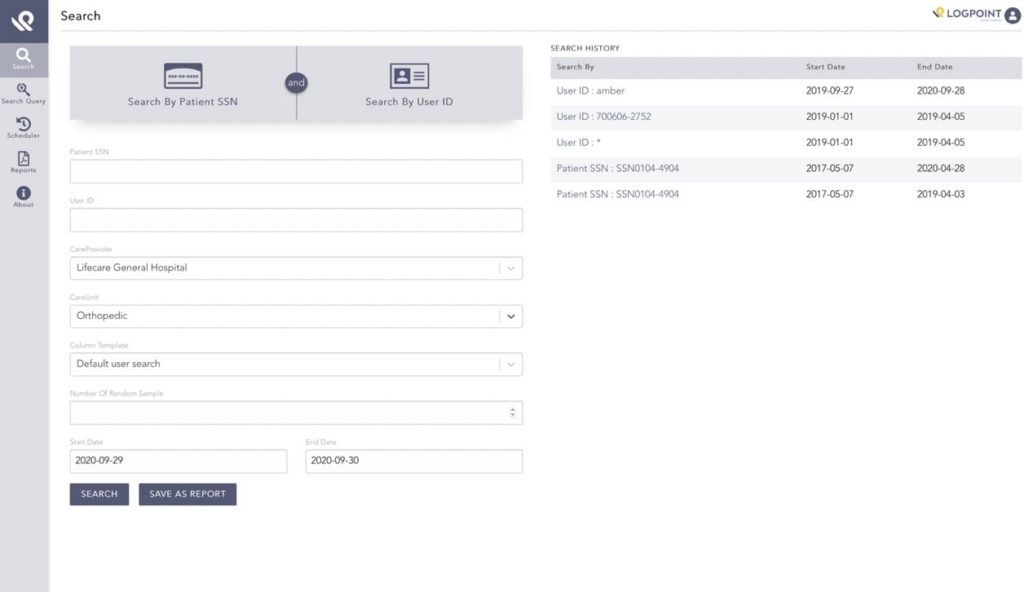
It’s easy to search through applications and create reports with Applied Analytics
Applied Analytics is a customizable tool. Users can translate the entire user interface into the local language and rename every button and panel in a relevant way.
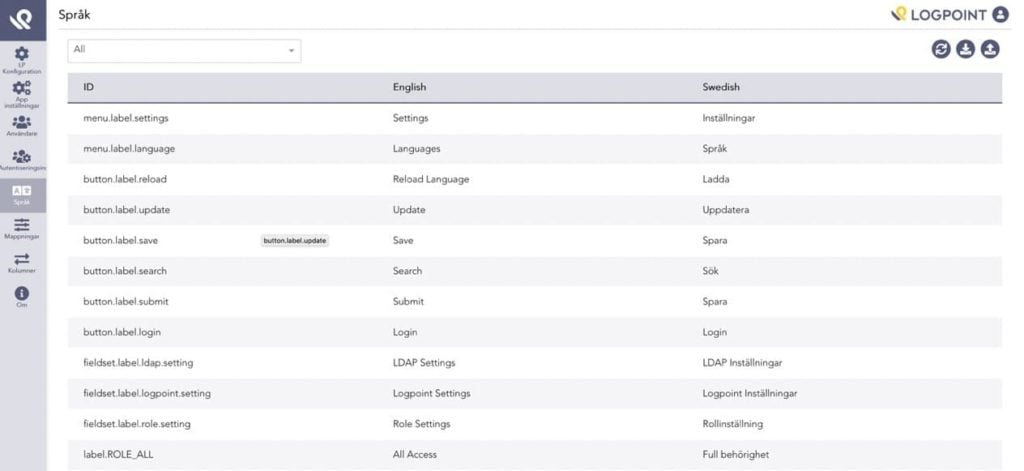
Administrators can easily translate and rename buttons from the mapping page.
Keep in mind that not everyone can create a report, there are five levels of users. However, once a user has created a report, Applied Analytics has a workflow for report approval.
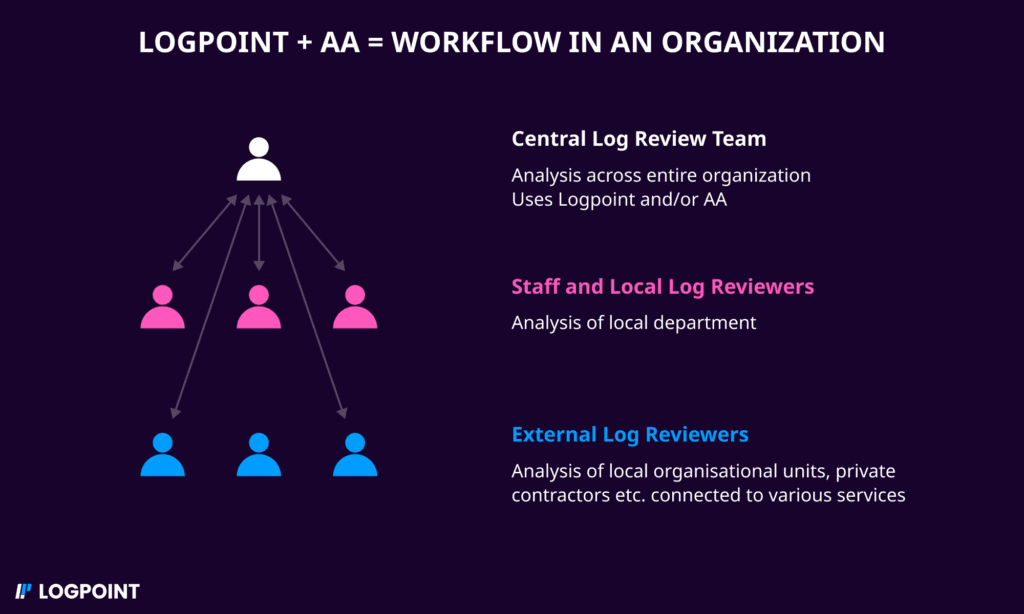
The workflow ensures reports are accurate, and the data is secure. The main benefits include:
- Customizable: Users can customize the report layout and translate the report into any language.
- Update reports on the fly: Users can add ad-hoc searches into the review workflow.
- Easy to collaborate: Report reviewers can read, comment, approve, and archive reports.
- Keep report data secure: Users can invite a colleague or manager to review the report without the need to email or send the report.
- Easy to scale: Report permissions allow a review hierarchy in a distributed organization.
- Increase organizational efficiency by minimizing manual controls and reporting.
- Ensure compliant user behavior.
Logpoint Applied Analytics is a complete solution for organizations that need an easy way to gather information from applications and create reports. Non-IT users can easily review activities in an application and submit reports for approval. With its strict permission control, Applied Analytics is perfect for reports that include sensitive information, such as personal security numbers or bank account details.





